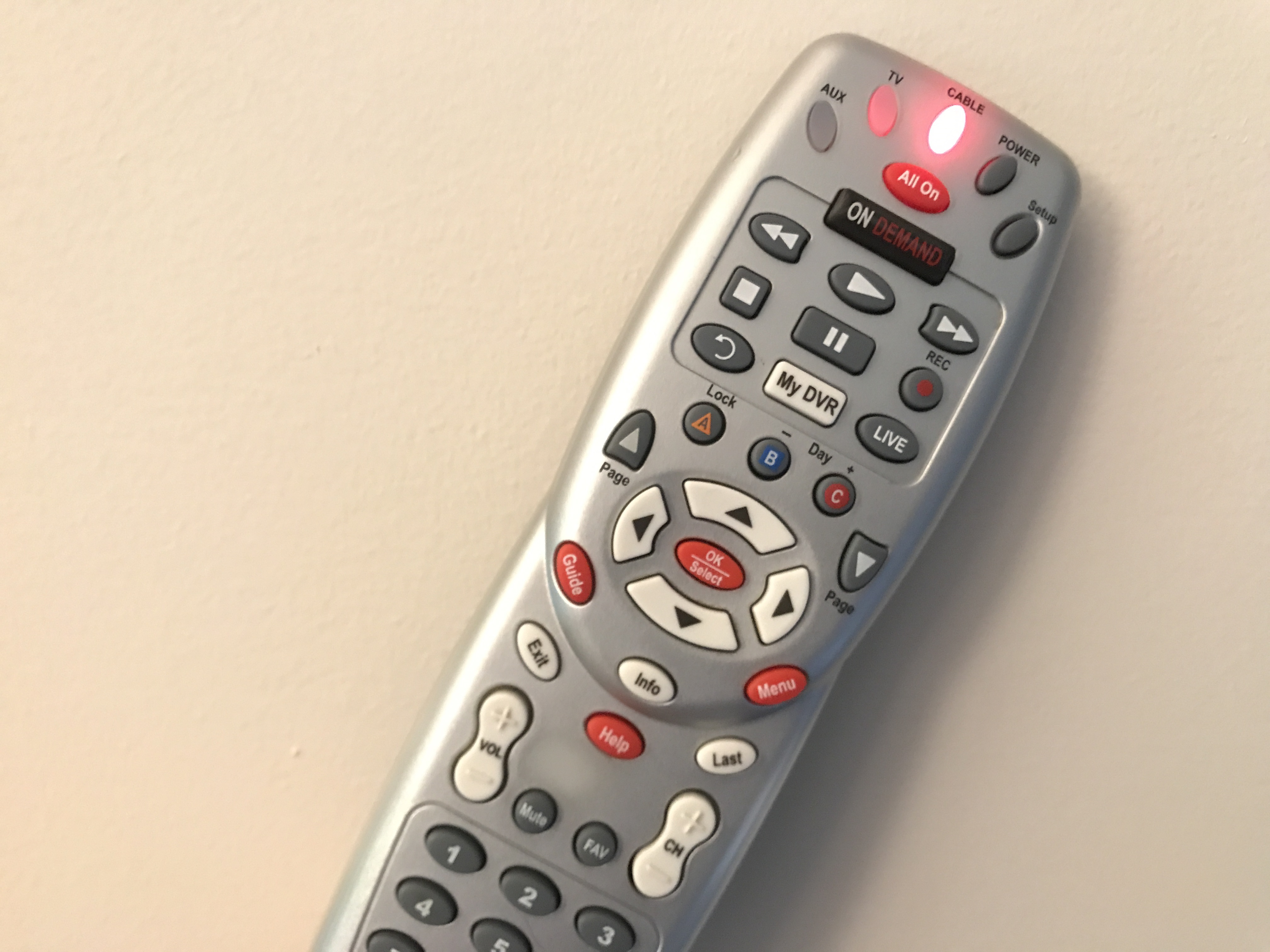AARP Eye Center

In the Beginning was the first blue light of the TV screen, reflecting the plains and mountains of the “vast wasteland.” In those primitive days of TV viewing, when I tired of the eye candy I was snacking, I left my comfortable perch in order to turn the tuner to another sweet shoppe.
Nowadays, when all the old and disabled folks who reside in my ALF (Assisted Living Facililty) want to channel-surf, we ask a caregiver to make the necessary changes to the tuner for us. She is our remote control mechanism.
But most of us remember the first years of the invasive species.
The simple action of standing and walking to the candy store set in motion a complex of synchronized bodily actions harmoniously traveling together: the gastrocnmeus and soleus, quadriceps, hamstrings, gluteus maximeus, and ab and ad – ductors.
No wonder channel changing was so exhausting.
Then, the forward trajectory of technological progress gave birth to the Remote Control in the 1950s. However, like all “modern” conveniences, there was a primordial phase. In the late eighteen nineties, the greats of broadcasting and electronic technology – Marconi and Tesla – investigated firing-up devices from far.
The world had reached the nirvana of TV viewing – staying seated on the couch and changing channels.
You’d think that was a simple task: putting a finger on a button and pressing down. Even when the channel has multiple numbers, it’s no problem to move a finger twice, even thrice, to select the desired channel.
But not me – with my hand disability. With the remote resting on my thigh, I hit the first number OK, but unless I’m quick to accelerate, desiring 10 gets me 1 (the TV Guide channel) and going for broke for a High Definition channel (710, for example) who knows what visual/aural noise will escape the LED screen?
But, lest we forget – technological jitter-bugging has given me the key to the HiDef candy store. I don’t need my “fingers to do the walking.” I use my mouth.
Everybody shout.
Dick Weinman is an AARP Oregon volunteer and ALF guru.
[Photo: Joyce DeMonnin]























































